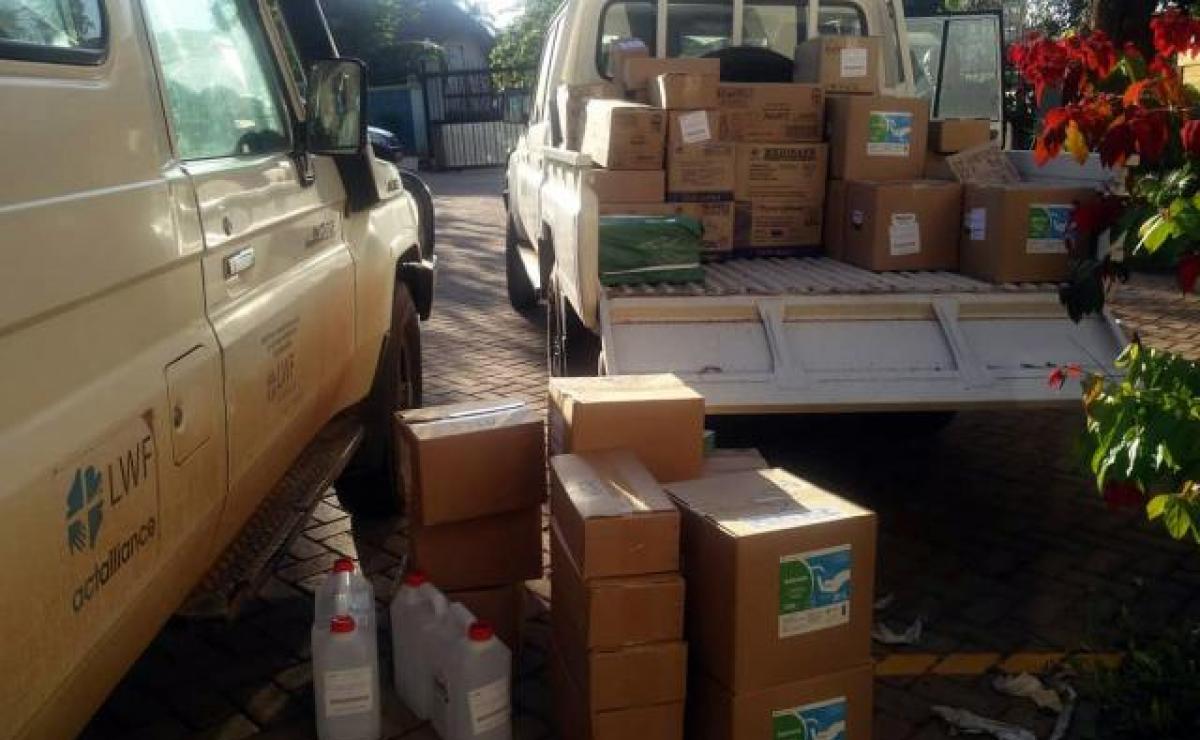COVID-19: LWF Uganda ramps up prevention

Campaigns focus on information sharing, hand washing, providing protective equipment, keeping distance
(LWI) - As countries around the globe continue to assess the spread of the Coronavirus disease (COVID-19) pandemic, Lutheran World Federation (LWF) staff in Uganda are stepping up efforts to prevent infections in refugee camps and host communities.
LWF Uganda works with over 450.000 refugees, providing support, shelter, sanitation and other basic services to those who have fled mainly from conflicts in neighboring South Sudan and Democratic Republic of Congo.
Jesse Kamstra, LWF Country Representative in Uganda, explains how staff are responding to the crisis.
LWF’s Country Representative in Uganda, Jesse Kamstra, says COVID-19 represents “an unprecedented challenge” as staff seek to ramp up prevention measures and “retool many of our activities to ensure that we are keeping social distances, and this is not easy.” Despite a nationwide lockdown that is in place to slow the spread of infections, LWF is among the few organizations that have been given clearance by the Ministry of Health to continue providing essential services.
Hand washing with ‘tippy taps’ are a cornerstone of the prevention campaign.
In Palorinya settlement in Obongi on the northern border with South Sudan, LWF staff are participating with other humanitarian agencies in a District Task Force to implement government directives and share best practices. Installation of hand washing facilities, temperature screening at the entrance to the compound, home-to-home awareness campaigning, radio talk shows, and megaphones on trucks to broadcast information are the principle ways in which communities are being sensitized about COVID-19 preventative measures.
Creating awareness about COVID-19 through road drives in Palabek refugee settlement in Lamwo District (Northern Uganda).
All vehicles used to broadcast information in the camps are equipped with face masks and hand sanitizers and are thoroughly cleaned after each field visit. They are also maintained with full fuel tanks to deal with any emergency that may arise. Despite significant financial challenges, LWF is trying to speed up procurement of essential hygiene items for all staff in Palorinya, including hand washing facilities, soap, infrared thermometers and personal protective equipment.
LWF is one of the few organizations that have been given clearance by Uganda’s Ministry of Health to continue providing essential supplies and services during lockdown.
Similar prevention measures have also been put in place in Kyangwali settlement in western Uganda on the border with DRC. Distribution of so-called ‘tippy tap’ jerry cans for hand washing has been stepped up and delivered t o all public places including police check points, detention facilities and youth centers. LWF has worked together with the local health department to plan and create messaging for radio stations and road drives through the camps.
As of 23 April, there were 359 confirmed cases of the virus and 25 deaths in the DRC, while 63 cases had been reported in Uganda and 4 in South Sudan, with no casualties in either country.
Given the continuing humanitarian crisis in South Sudan and very limited capacity of medical facilities, LWF is extremely concerned about preventing any spread of the virus, especially in refugee camps and settlements in Upper Nile and Unity States. Staff are planning and carrying out awareness campaigns, distributing educational material and hygiene supplies in community centers, cooperatives and other places where people can receive accurate information on COVID-19 prevention.
See the full interview with Jesse Kamstra, LWF Country Representative in Uganda

